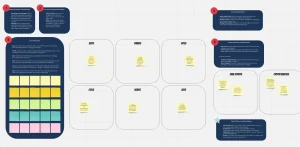Accounting errors can occur for a variety of reasons. One common mistake is not recording a transaction. This can happen for many reasons, including a failure to keep track of documents. For example, an invoice for a tablet might be forgotten to record. Other errors include duplicate entries for income and expenses. Fortunately, there are ways to prevent these mistakes. Here are some of the most common types of accounting errors and their consequences. To prevent them, use the following steps.
Reversal of entries: When the amount of a transaction is accidentally entered in the wrong account, it is a reversal of that entry. For example, a credit entry is made for raw materials, but the real cost of the finished product is debited instead of credited. Or, an entry is posted to the wrong account – for example, a $700 purchase of office chairs is debited to the wrong account.
Another common mistake is incorrectly classifying assets. This can greatly impact the balance sheet of a company and give a false picture of the company’s financial situation. If this happens, you can correct the mistake by creating a correction journal entry. The key is to keep a log of any corrections made to the books as soon as you identify them. Adding a correction entry will help you correct errors that affect the financial statements. This prevents reversals from becoming an ongoing issue.
Errors of principle: These mistakes are caused by the violation of a basic accounting principle. For example, a mechanic might write down a sale in his wage account, but credit a purchase in another account. A computer program might make a similar mistake, and the two mistakes balance. This makes them appear to be a simple mistake. Accounting errors are caused by mistakes in data entry and computation. Once an error has been identified and corrected, the company can continue to meet its financial goals.
Accounting errors can be easily fixed. A simple trial balance will show a discrepancy between the debit and credit sides of a business’s books. However, this is not always the case. If an error causes an account to appear to be overstated, an investigation must be conducted to determine the cause of the imbalance. Accounting errors are the most common reason for an imbalanced trial balance. If you can fix this discrepancy, you’re less likely to be caught by fraud or other errors.
Ultimately, accounting errors can result in major problems. The wrong information can lead to suboptimal lending and operating decisions. Ultimately, inaccurate data can also lead to strained relationships with customers and suppliers. This can make a business appear dishonest and unreliable. It can also be costly to correct accounting mistakes because it takes time and staff resources. Further, errors of this type can make the business appear inefficient and make the costs of labor much higher than necessary.










More Stories
Developing a Business Continuity Plan for Long-Term Remote and Hybrid Teams
Business Models for the Circular Economy in Consumer Electronics
Navigating the Creator Economy: A B2B Brand’s Playbook for Authentic Connection